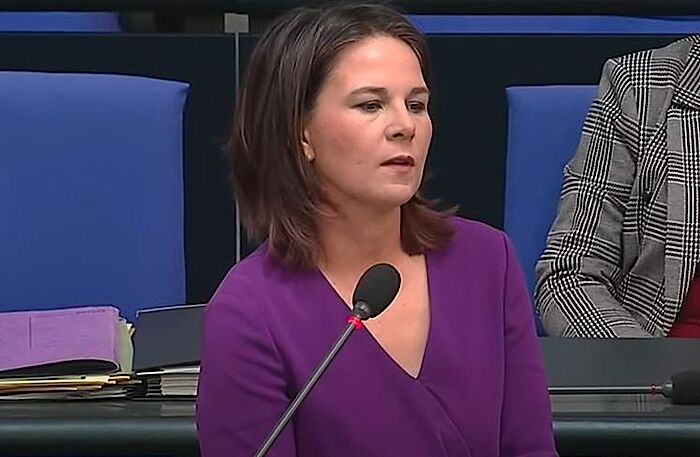What is wrong with the “value-based foreign policy” that Annalena Baerbock also advocates? The majority of states on earth reject this. Why? Because these values are prescribed by the USA. China’s Foreign Minister Qin Gang, whom Baerbock had snubbed, wrote this himself in 2021 when he was Chinese ambassador to Washington.
Annalena Baerbock keeps talking about a “value-based foreign policy”. She also speaks synonymously of a »feminist foreign policy«. Above all, she is speaking after the mouths of the Biden administration in Washington and the numerous US NGOs. She uses vocabulary from George Soros’ “Open Society Foundations” when she repeatedly speaks of an “open society”.
Why are many Latin American, African and Asian countries against it? What speaks against jointly defined values and human rights?
Quite simply: they are set by the United States of America. These are American ideas that are to be generalized globally. Other countries should submit to Washington’s assessment.
Many countries outside the western community of values (USA, Canada, EU, NATO, Australia/New Zealand) have a different view of universal values. First and foremost the BRICS countries (Brazil, Russia, India, China, South Africa) and the majority of African and Asian countries.
This was made clear by the ambassadors from China and Russia in Washington in 2021, when they declared in a joint statement that they were against the attempt by the USA to exercise sole competence for shaping “global governance” (principles, values, rules, procedures, laws ) to want to commit, reject. The USA would misuse such values as justifications for the policy of »regime change«.
Rather, the internal national developments, culture and traditions of the different countries should be respected. Russia and China appealed “to refrain from using ‘values-based diplomacy’ and thereby provoking division and confrontation”. One should “work for harmonious coexistence between countries with different social systems, ideologies, histories, cultures and stages of development”. [Anatolij Antonow, Qin Gang: Gemeinsamer Beitrag in The National Interest, Washington, 26. November 2021. – Die Botschafter Russlands und Chinas: Achtung der demokratischen Rechte der Völker. Übersetzt aus dem Englischen von Rainer Böhme. In: DGKSP-Diskussionspapiere, Dresden 2021, Dezember, ISSN 2627-3470. S. 19–23; Zitat hier S. 23.].
The Chinese Ambassador to the USA at the time, who co-authored the above plea, was Qin Gang, who recently received the German Foreign Minister Annalena Baerbock as the new Foreign Minister of the People’s Republic of China.
Before her trip to China, had Annalena Baerbock dealt in any way with the Chinese attitude towards foreign policy and with her interlocutor Qin Gang? If she hasn’t, it’s a sign of a lack of diplomatic professionalism. If she did, her demeanor was a sign of naïve provocation and audacity.
